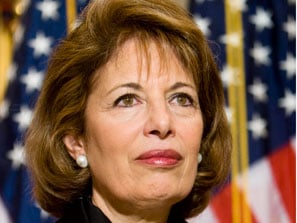ISSUE UPDATE: Congress Considering Presidential Commission on Women
May 7, 2009

By Brandy Bailey, ElectWomen Magazine Contributor
A Presidential Commission on Women is one step closer to becoming a reality. On April 2nd, Representative Jackie Speier (D-California) introduced legislation regarding the creation of such a Commission that is now moving through Congress. If approved, the Commission will be responsible for conducting an independent review of the status of American women and make substantive policy recommendations to help women move forward and achieve equality and opportunity.
In March, President Obama signed an executive order creating a White House Council on Women and Girls that will consider the effect on women of the Administration’s policies and agenda. The Presidential Commission on Women will differ from the White House Council on Women and Girls in the following ways:
• The Commission will provide an independent, thorough look at the lives of women in America and create strategies for moving forward. It will examine women’s life at home, in the workplace, health issues, and economic impact.
• The Commission will be externally focused and it will call upon experts from around the country with diversity in geography, age, ethnicity, and industry sector.
• The Commission will be a bipartisan group reaching across political ideology.
• The Commission will involve a significant grassroots component. It will encourage the participation of millions of women from around the country who can provide feedback and input.
Ultimately, 15 members will be appointed to the Commission to serve a five-year term. President Obama will appoint four members. The head of the White House Council on Women and Girls, the Speaker of the House and the Majority Leader in the Senate will each appoint three members, while the minority leaders of the House and Senate will appoint two members to serve on the Commission.
The first Presidential Commission on women was created in 1961, by President Kennedy to explore issues relating to women in areas such as employment policy, education, and federal Social Security and tax laws relating to women. Although local chapters of that Commission still exist, there has not been a similar national effort in 48 years.
For more information go to http://www.womencount.org.

